Executive Board
Research Director
Supervisory Board
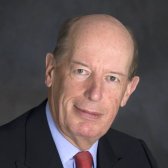
Mr. J. H. Schraven (Jacques)
Chair of the Supervisory Board
Former Non-Executive Independent Director and Chairman of Safety, Health & Environment Committee, Tata Steel Limited
Full bio
From 1999 until 2005 Jacques Schraven served as chairman of the Netherlands Confederation of Industry and Employers (VNO-NCW). Before that he was president of Shell Nederland B.V. A lawyer by training, Jacques joined the legal department of the Royal Dutch/Shell Group in The Hague in 1968. After a series of legal, financial and commercial secondments in the Netherlands, Curaçao, Venezuela and the United Kingdom, he moved to Buenos Aires in 1984 as chief executive of the Shell companies in Argentina. After that he served as a director of the Corporate Centre within the central offices of the Group in London and The Hague. In 1997 he was appointed president of Shell Nederland B.V.
From 1999 until 2005 Jacques was deputy chairman of the Social Economic Council and chairman of the Labour Foundation. He was a member of the Bank Council of the Netherlands Central Bank and chairman of the Netherlands Council for Financial Reporting. He also served as vice chairman of BusinessEurope, the confederation of Industrial and Employers’ federations in Europe.
Jacques is currently chairman or a member of the supervisory boards of Stork B.V., NUON Energy B.V. and BNP Parisbas OBAM. He also serves as chairman of the Trust Foundation of Unilever N.V. and the Trust Foundation Preference Shares “B” of Koninklijke KPN N.V. Outside business he is a board member or trustee of the Netherlands Blood Institute Sanquin, the Carnegie Foundation, the Rotterdam Philharmonic Orchestra and the Foundation for Social-Economic Research (SEO).
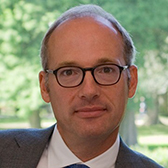
Mr. H. Schultz van Haegen (Haro)
Founding parner of Vondel Finance
Chairman of the board for the Stedelijk Museum de Lakenhal
Full bio
Mr. Haro Schultz van Haegen worked as an attorney for 8 years at the De Brauw Blackstone Westbroek firm, he also served as negotiatior and legal manager at Shell betweeen 2001 and 2004. In 2004 Mr. van Haegen became a founding partner of Vondel Finance. He is also the chairman of the board for the Stedelijk Museum de Lakenhal and Treasurer for the Foundation Lucas van Leyden Mecenaat.
Mr. van Haegen has helped HiiL around the Innovating Justice Accelerator and is helping HiiL understanding the ‘investment’ world.
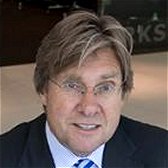
Mr. P. C. Jurgens (Peter)
Chairman, Facilitator and Counselor at Elegast, Microjustice Initiative
Full bio
Peter Jurgens is independent moderator and counsellor of board sessions on positioning, reputation, marketing, change and strategic communication.
From 1998 – 2010 he was partner and owner of Boer & Croon and responsible for all consultancy activities in the area of positioning, reputation, branding, marketing, change management and strategic communication. From 2001 – 2005 he also served as vice-chairman of the executive board of Boer & Croon.
From 1993 – 1998 he served as managing director/vice president of Burson-Marsteller, a leading global communication consultancy.
Earlier in his career he worked at The Boston Consulting Group and PricewaterhouseCoopers, being involved in strategic and financial assignments.
He serves as chairman of Microjustice Initiative and as member of the supervisory boards of COT Institute for Security and Crisis Management and of Total Identity.
Peter studied physics and mathematics, business administration and Dutch language and literature.
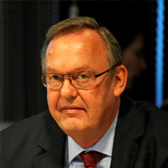
Mr. K. Rackwitz (Klaus)
Director, International Nurenberg Principles Academy
Full bio
Mr Rackwitz was born in Germany in 1960. He studied law at the University of Cologne, and upon graduation was appointed as a judge. For many years, he headed the division for information technology and reorganisation in the Ministry of Justice of North Rhine-Westphalia, with responsibility for large-scale reorganisation projects in the judiciary of his state.
Mr Rackwitz’s experience in the above fields led to his engagement in the Advance Team of the ICC. Since January 2003, he was a staff member of the Office of the Prosecutor and contributed to building up the office from scratch and developing it into a worldwide operating Prosecution Office, currently with more than 300 staff members. As the Senior Administrative Manager of the Prosecution Office of the ICC, he was responsible for the budget, the reporting and all financial transactions of the Prosecution Office, general administration, Human Resources administration, IT, language services and the management of all information and evidence received by the Prosecutor. He worked in the field of IT law and has lectured for several years on civil law, commercial law and IT law at the Universities of Cologne and Düsseldorf and the Technical Academy of Wuppertal. Mr Klaus Rackwitz was selected and appointed as the new Administrative Director of Eurojust on 14 July 2011.
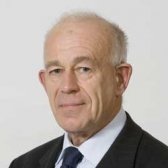
Prof. Dr. M. Scheltema (Michiel)
Government Commissioner, Ministry of Security and Justice
Full bio
Prof.dr. Michiel Scheltema was one of the founders of the Hague Institute for the Internationalization of Law (HiiL) and since 2006 he has been a member of the Programmatic Steering Board of the Institute till July 2012.
Michiel Scheltema was born in The Hague, in 1939. In June 1964 he graduated as a cum laude in Dutch Law from the University of Leiden. In 1965 Scheltema also obtained a LL.M degree from the Harvard Law School. In 1995 he acquired an honorary degree from University of Leiden. In 1965 Scheltema started his career as an official in the Public Law Legislation Division of the Dutch Department of Justice, where he worked until 1972. From 1972 to 1981, he was a professor of Constitutional and Administrative Law at the University of Groningen. In 1981-82 Scheltema was the Dutch Minister of Justice in the Cabinet Van Agt II and the Cabinet Van Agt III, on behalf D66. As a minister he was responsible for youth protection, law, offenders care, and immigration policy. While in office, he also dealt with the international legal and constitutional reforms. As a minister he also participated in the process of drafting the new Dutch Civil Code. In September 1983 he became a Government Commissioner for the General Administrative Law Act. From 1998 until 2004 Scheltema was Chairman of the WRR, i.e. the Scientific Council for Government Policy of the Dutch government, of which he was an advisory member since 1997. Since 2004, he is a member of the Management Council for Construction. Currently, Scheltema is also a visiting chair at the Ministry of Finance, Economic and Social Affairs dealing with the “Andere Overheid” program. Moreover, Scheltema is a board member of the Territotiale Decentralisatie and health center Bijum.
From 1965 to 1968, Scheltema was editorial secretary of the Common Market Law Review. In 1967 he became a general secretary of the State Commission for the Dutch Civil Law and, in 1972, he also became a general secretary for the State Committee on Privacy Legislation. He was employed by the “Ars Aequi” Magazine in 1968, where he wrote for the legislation section of the periodical. In 1983, Scheltema became a chairman of the Committee of General Rules of Administrative Law and in 1992 he chaired the External Parliament Committee on Ministerial Responsibility. He was also a chairman of the Evaluatiecommissie Vreemdelingenwet in 2006 and of the committee which examined the bankruptcy of DSB Bank, from 2009 to 2010.
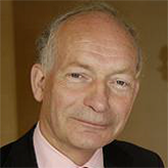
Mr. E. Wellenstein
Former Dutch trade negotiator and ICC embassador
Full bio
Mr. Wellenstein was born in The Hague, Netherlands, on 15 November 1949. He holds a baccalaureate from the European School in Luxemburg and a degree in Economics from the University of Groningen which he obtained in 1975.
In 1976, after his military service, Mr. Wellenstein entered the Ministry of Economic Affairs, serving in the Directorate-General for Foreign Economic Relations, initially dealing with export financing and export subsidiary matters. From 1982 to 1985, he was Private Secretary to the Secretary of State for Foreign Trade. After a sabbatical leave at the Fletcher School of Law and Diplomacy (USA) in 1986 he was appointed Head of Division for Bilateral Economic Affairs with Asia, Africa and the Middle East. Then, in 1987, he moved to the Directorate for Multilateral Affairs as Head of the GATT Division. From 1989 to 1992, Mr. Wellenstein was posted to the European Directorate as Director of European Affairs, and was involved in the Maastricht Treaty negotiations.
In 1992, he was named Director for GATT, UNCTAD, Investment Agreements and Commodity Agreements within the Directorate for Trade Policy, and was involved in the Uruguay Round negotiation eventually leading to the creation of the WTO. In 1994, Mr. Wellenstein moved to the Ministry of Defence, where he served as Head of the Directorate-General for Budget and Management. His responsibilities included budget planning and financial management, strategic guidance and information management. Then, in 2002, he joined the Ministry of Foreign Affairs as Head of the International Criminal Court task force, holding the post of Permanent Representative of the Netherlands to the ICC.
From 2007, until his nomination as Permanent Representative of the Netherlands to the OECD, Mr. Wellenstein served as a member of the Change Team at the Ministry of Foreign Affairs. After his term at the OECD, he led reorganisations at the Dutch Ministry of Foreign Affairs. He recently retired from the Ministry.
Programmatic Steering Board
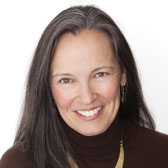
Prof. Gillian Hadfield
Chair of the Programmatic Steering Board
Richard L. and Antoinette Kirtland Professor of Law and Professor of Economics at the University of Southern California
Full bio
Gillian Hadfield is the Richard L. and Antoinette Kirtland professor of law and professor of economics at the University of Southern California. Professor Hadfield joined the USC Law faculty in 2001. She studies the design of legal and dispute resolution systems in advanced and developing market economies; the markets for law, lawyers and dispute resolution; contract law and theory; and economic analysis of law; and regulation of legal markets and legal profession. She is the director of the Southern California Innovation Project and co-director of the Center in Law, Economics, and Organization. She teaches Contracts; Advanced Contracts: Strategic Analysis and Advice; and Legal Design.
Professor Hadfield holds a B.A.H. from Queen’s University, a J.D. from Stanford Law School and an M.A. and Ph.D. in economics from Stanford University. She served as clerk to Chief Judge Patricia Wald on the U.S. Court of Appeals, D.C. Circuit. Prior to joining the faculty at USC, she was on the law faculty at the University of California, Berkeley, and the University of Toronto, and a member of the faculty of the Global Law School at New York University and the European School for New Institutional Economics. Professor Hadfield was the Sidley Austin Visiting Professor at Harvard Law School for the Winter Term of 2010 and the Justin W. D’Atri Visiting Professor of Law, Business and Society at Columbia Law School in the fall of 2008. She was a 2006-07 and 2010-11 fellow of the Center for Advanced Study in the Behavioral Sciences and a National Fellow at the Hoover Institution in 1993. She also has held Olin Fellowships at Columbia Law School, Cornell Law School and USC and is a member of the Comparative Law and Economics Forum. She is past president of the Canadian Law and Economics Association and a former director of the American Law and Economics Association. She is currently director of the American Law and Economics Association; a member of the board of the International Society for New Institutional Economics; and a member of the American Law Institute.
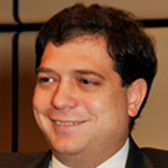
Dr. Juan Carlos Botero
The World Justice Project’s Executive Director and former Director of the Rule of Law Index
Full bio
Dr. Juan Carlos Botero is a professor at Pontificia Universidad Javeriana School of Law.
He is also former the World Justice Project’s Executive Director and Director of the Rule of Law Index, where he has led the development of the Index project and co-authored the report since its inception in 2008.
Dr. Botero has extensive experience developing indicators to measure performance of institutions in countries around the world. As a researcher at Yale University and the World Bank, he was one of the designers of the methodology for the indices of judicial efficiency and dispute resolution, and labor regulation for the World Bank’s Doing Business indicators. Previous experiences include service as Chief International Legal Counsel of the Colombian Ministry of Commerce; Deputy-Chief Negotiator of the US-Colombia Free Trade Agreement; and Director of the Colombian Government Trade Bureau in Washington DC. He was appointed by the President of Colombia as a member of the Advisory Board of the Colombian Antitrust and Consumer Protection Agency, and served at the Ad-Hoc High Committee for the Reform of the Andean Community Tribunal and Dispute Settlement Mechanism. He was also Director of the Instituto de Ciencia Politica in Colombia, and Judicial Clerk for Justice Carlos Gaviria Diaz of the Colombian Constitutional Court.
He has been a professor or guest lecturer in several countries, and has taught legal theory and comparative law at the Universidad de los Andes in Colombia and Universidad Privada Boliviana in Bolivia. He also served as Director of the Instituto de Ciencia Politica in Colombia. He served as Vice Chair of the World Economic Forum’s Global Agenda Council on Rule of Law in 2011, and is a member of the World Economic Forum’s Global Agenda Council on Justice for the 2014 – 2016 term. His academic publications have focused on the areas of rule of law, access to justice, labor regulation, child labor, and judicial reform.
A national of Colombia, Dr. Botero holds a law degree from Universidad de los Andes; a Master of Laws (LLM) from Harvard University; and a Doctorate of Juridical Science (SJD) from Georgetown University.
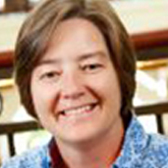
Prof. Rebecca L. Sandefur
Associate Professor of Sociology and Law and Director of Graduate Studies in Sociology at the University of Illinois in Urbana-Champaign
Full bio
Rebecca L. Sandefur is Associate Professor of Sociology and Law and Director of Graduate Studies in Sociology at the University of Illinois in Urbana-Champaign. She is also Faculty Fellow at the American Bar Foundation, where she founded and leads the Foundation’s access to justice research initiative.
Sandefur’s research focuses on inequality, particularly as it relates to law. Her scholarship includes investigations of work and inequality in the legal profession and other professional occupations, lawyers’ pro bono service and its contributions to legal aid, and studies of ordinary people’s experiences with common problems that could bring them into contact with the civil justice system. Her current research on the public includes the Community Needs and Services Study (CNSS), a community-sited, multi-method study of ordinary people’s experiences with civil justice problems and the resources available to assist them in handling those problems. The CNSS is funded by the National Science Foundation (SES-1123507) and the American Bar Foundation. Her current research on the legal profession includes work drawing on the After the JD (AJD) surveys that explores how lawyers who take relatively low-paying jobs serving government, public interest causes, or ordinary people are able (or not) to manage high levels of educational debt. She also serves on the Executive Coordinating Committee of the AJD. In 2013, she was The Hague Visiting Chair in the Rule of Law, affiliated with the Hague Institute for the Internationalization of Justice (HiiL).
Her public service has included advising state access to justice commissions and service on the Right to Counsel Committee of the California Access to Justice Commission, the Research Advisory Board of the Civil Right to Counsel Leadership and Support Initiative, California’s Sargent Shriver Civil Right to Counsel Evaluation Committee, and American Bar Association working groups on pro bono service and employment for new attorneys that expands the public’s access to justice. Before joining the American Bar Foundation and the University of Illinois, Sandefur received her PhD in sociology from the University of Chicago in 2001 and served for 9 years on the sociology faculty of Stanford University.
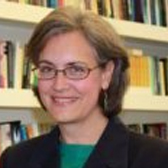
Prof. Beth Simmons
Clarence Dillon Professor of International Affairs International Relations
Full bio
Beth Simmons is Clarence Dillon Professor of International Affairs at Harvard University. She received her PhD. from Harvard University in the Department of Government. She has taught international relations, international law, and international political economy at Duke University, the University of California at Berkeley, and Harvard. Her current areas of research include cooperative approaches to counter transnational crime (human trafficking, money laundering, corruption), the development of international law with respect to foreign direct investments, and the implementation of international human rights standards in domestic law.
Her book, Who Adjusts? Domestic Sources of Foreign Economic Policy During the Interwar Years, 1924-1939, was recognized by the American Political Science Association in 1995 as the best book published in 1994 in government, politics, or international relations. Her recent book entitled Mobilizing for Human Rights: International Law in Domestic Politics was published in 2009 from Cambridge University Press. It received the APSA’s Woodrow Wilson Award, the International Social Science Council’s Stein Rokkan Prize, the American Society for International Law’s Certificate of Merit for a Preeminent Contribution to Creative Scholarship, and the International Studies Association’s Best Book Award.
Beth Simmons has worked at the International Monetary Fund with the support of the Council on Foreign Relations Fellowship (1995-1996), has spent a year as a senior fellow at the United States Institute of Peace (1996-1997), a year in residence at the Center for Advanced Study in the Behavioral Sciences at Stanford (2002-2003), and a year as a Straus Fellow at New York University Law School’s Institute for Advanced Study of Law and Justice (2009-2010).
She currently serves as Director of the Weatherhead Center for International Affairs at Harvard. Simmons was elected in April 2009 to the American Academy of Arts and Sciences, and through April 2012 is President of the International Studies Association.


